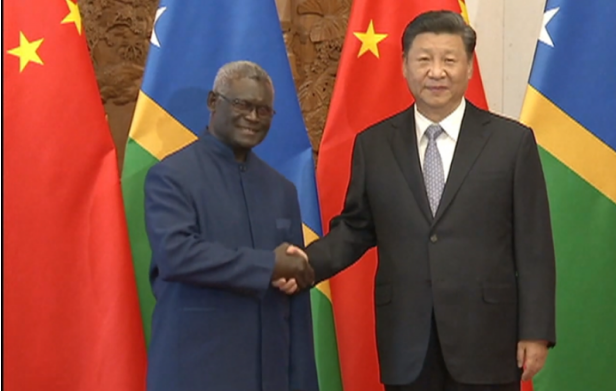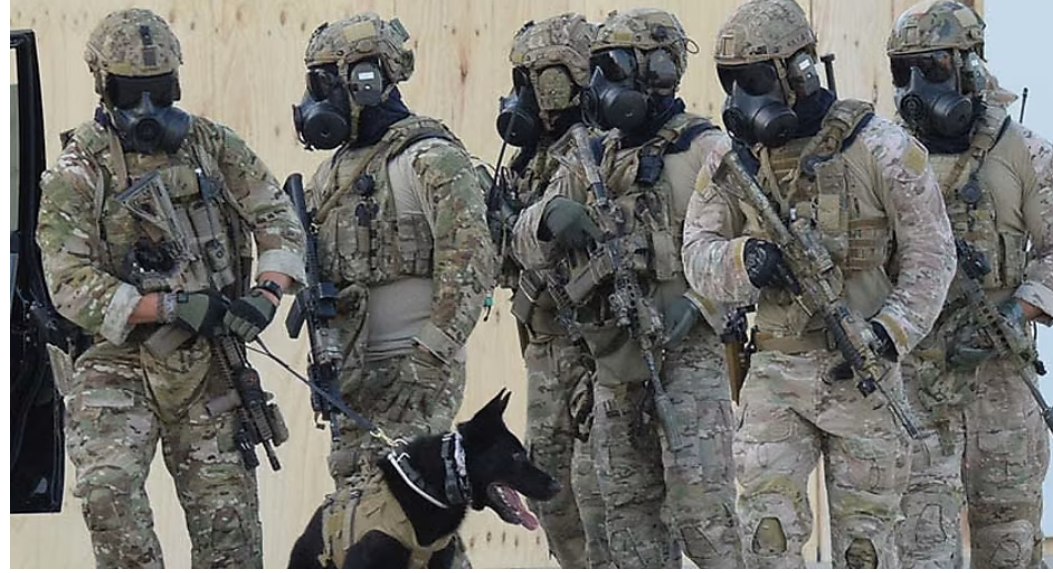Written by: (Contributed) on 28 February 2024
Those observing the dysfunctional nature of US politics may have overlooked one of the serious side-effects of the irrational behaviour. Three Pacific countries which remain dependent upon US foreign aid, have been kept waiting for financial support to materialise with no sign it will take place at some future date. It has been noted from more sensible quarters the three countries, at present diplomatically linked to Taiwan, are, in effect, being pushed closer to switching to China, and thereby, creating greater problems for US regional foreign policy and foisting likely military options upon their allies
Decision-maskers in Washington, supposedly operating in line with Pentagon military planning, can hardly be described as behaving in a rational manner and pursuing a straightforward agenda; they are pushing policies which are clearly counter-productive. Other countries, also dependent upon US foreign policy, including Australia, should perhaps take notice of the highly questionable political and diplomatic behaviour, and evaluate it accordingly. The US budget impasse has thrown elements of AUKUS planning into doubt, according to some in the Australian military community.
With US presidential elections looming later this year the spectacle of an ageing president with cognitive problems being confronted by a far-right buffoon backed by red-necks and gun clubs has become a daily event. It is hardly worth speculating their next move; in fact, it is difficult to take the spectacle seriously.
The latest political chicanery has included pro-Trump supporters wanting to re-introduce an amendment about funding for security on the US border with Mexico into the budget; they have actively campaigned for building a wall to prevent asylum-seekers from Central America as a central part of their increasingly racist and nationalistic political agendas.
Behind the scenes, however, they are pursuing a peculiar and devious agenda, which contributes to undermining US leadership positions in the Pacific; the region is a centre of geo-political battles between the US and China. The US budget impasse has hindered US foreign policy toward Palau, the Marshall Islands and Micronesia, effectively cutting their financial support. Dependent upon US foreign aid, the three countries have been kept waiting for months for vital foreign aid. (1) There is no sign the budget impasse will be resolved in the near future.
In fact, reliable observations about the debacle have noted the three Pacific countries signed a twenty-year agreement last October with the US which cost Washington $7.1 billion, designed to safeguard sensitive shipping lanes in competition with China; the cost of replacing the agreement with military options has been estimated to cost $100 billion. (2)
Most of the Pacific islands had neo-colonial economic relations foisted upon them with independence; their economies have never been sustainable without foreign aid. The mass of the populations live subsistence lifestyles. Essential services are usually provided by foreign aid.
Elsewhere in the region, countries such as the Solomon Islands which made the diplomatic switch in 2019, were rewarded with extensive support from China. Beijing, historically, has been generous with its regional aid programs. It has, therefore, been noted by the President of Palau, Surangel Whipps Jnr., that he was 'coming under domestic political pressure to shift his country's allegiance from the US to China, dropping support for Taiwan'. (3) He further noted that 'every day … the US budget is not approved … plays into the hands of China'. (4)
Similar concerns have also been raised in neighbouring Tuvalu following recent presidential elections where the pro-Taiwan leader lost his seat. Nauru, likewise, made the diplomatic switch from Taiwan to China following recent presidential election last month.
The three Pacific countries, Palau, the Marshall Islands and Micronesia, also form a strategic component part of Taiwan's New Southbound Policy, based on forging closer links with countries in the region and using their diplomatic links to gain access to regional dialogues and trade organisations. (5)
Taiwan, however, has become increasingly diplomatically isolated with a declining number of countries supporting Taipei, none of the remaining countries can be regarded as diplomatically significant. In fact, Taiwan stands the very real risk of total diplomatic isolation as countries switch allegiance to China. In practical terms, as the number of countries diplomatically recognising Taiwan dwindles, decision-makers in Taipei have fewer supporters to assist them at UN level.
Taiwan, however, is diplomatically important for Washington and the Pentagon, marking the centre of Island Chain Theory, used for regional foreign policy with tiny Pacific countries having huge significance by providing strategic access and egress across the vast waterways. (see diagram) Each diplomatic switch from Taiwan to China also enables Beijing to gain access to exclusive economic zones, rich in minerals and natural resources. (6)
Other regional defence and security considerations include the Pentagon planning to build a radar base on Palau and the Marshall Islands hosting the Space Fence, a sensitive space surveillance system. (7)
Returning to the budget impasse in Washington, it is perhaps appropriate to see the whole spectacle as a collapse of political will at the imperial centre being played-out inside a constitution which one side does not even regard as legitimate; it has far-reaching implications for Australia and other US allies.
The US appear to be abandoning Taiwan, if not in word, then by their actions; both Washington and the Pentagon, it should be noted, appear to expect their allies within the Indo-Pacific Strategy (IPS) to take greater responsibility for regional operations. (8)
Bound ever closer to the US through the 'alliance' and numerous military agreements, Canberra, for example, has been forced to accept greater responsibility for regional 'US interests'; the defence and security of strategic Pacific countries, therefore, is a major concern foisted upon Australia. The recently published list of military acquisitions reveals longer distance deployments outside of Australia's usual areas of concern, already been planned by the Pentagon.
In order to increase US production of nuclear-powered submarines and thus have several to pass onto Australia, both countries agreed to provide US$3.3 billion – or A$4.6 billion from our side – but the US payment has been delayed by Congress. Editor of the online Asia Pacific Defence Reporter Kim Bergmann commented: ‘So while Australia remains on the hook for a contribution of $4.6 billion – which neither the government nor the RAN can justify – the Americans refuse to spend their own money to speed up submarine production. What an ally! Unless Virginia class submarines are being built at a rate of 2.33 per year, Australia will receive nothing.’
The vast Australian defence budget is also set to increase dramatically, lifting spending from 2.05 per cent of present GDP to 2.3 per cent by the end of the decade. Much of the increased expenditure is based on military systems and equipment with designed interoperability with the US under their command; little thought or consideration has been given to the defence and security of Australia itself. (9)
The IPS, likewise, has established an agenda to only serve 'US interests', not those of its allies:
We need an independent foreign policy!
1. See: US budget impasse driving Palau into arms of China, Australian, 21 February 2024.
2. Ibid.
3. Ibid.
4. Ibid.
5. See: Beijing keeps a wary eye on new Taipei outpost, Australian, 18 June 2018.
6. US v. China, Japan Forward: Politics and Security, Dr. Rieko Hayakawa and Jennifer L. Anson, 14 February 2020.
7. Ibid., and, Australian, op.cit., 21 February 2024.
8. See: The reasons behind Washington's push for GSOMIA., Hankyoreh, 12 November 2019, with details about the US regional policy for allies taking responsibility for US-led operations.
9. Introductory remarks to APDR Podcast no. 37









